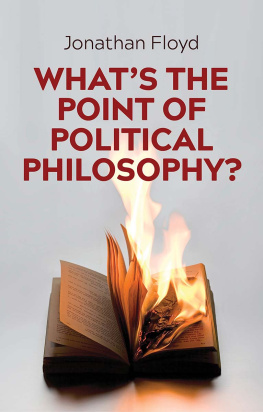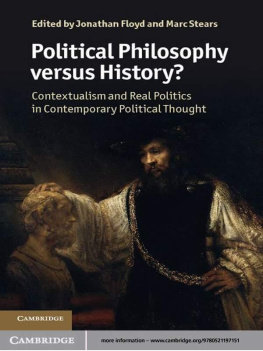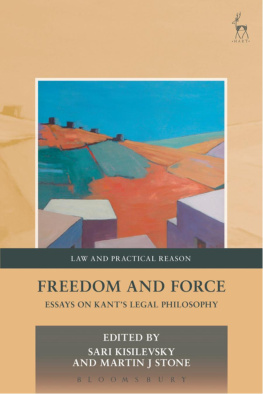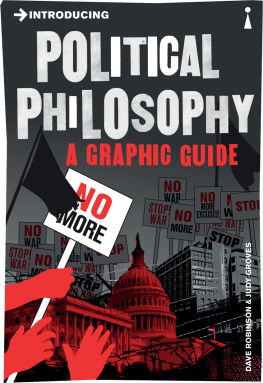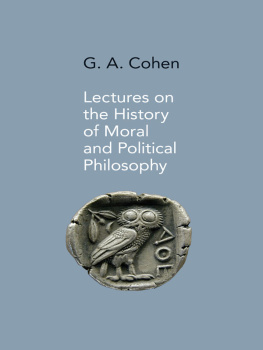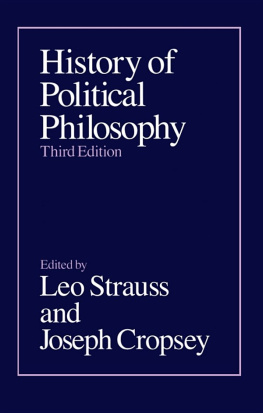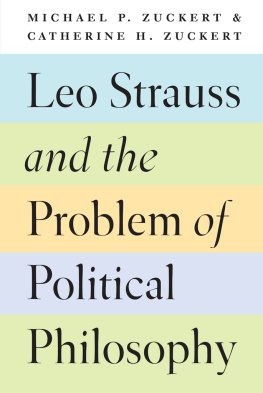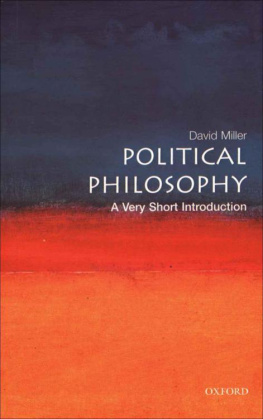
Whats the Point of Political Philosophy?
Jonathan Floyd
polity
Copyright Jonathan Floyd 2019
The right of Jonathan Floyd to be identified as Author of this Work has been asserted in accordance with the UK Copyright, Designs and Patents Act 1988.
First published in 2019 by Polity Press
Polity Press
65 Bridge Street
Cambridge CB2 1UR, UK
Polity Press
101 Station Landing
Suite 300
Medford, MA 02155, USA
All rights reserved. Except for the quotation of short passages for the purpose of criticism and review, no part of this publication may be reproduced, stored in a retrieval system or transmitted, in any form or by any means, electronic, mechanical, photocopying, recording or otherwise, without the prior permission of the publisher.
ISBN-13: 978-1-5095-2422-8
A catalogue record for this book is available from the British Library.
Library of Congress Cataloging-in-Publication Data
Names: Floyd, Jonathan, 1980- author.
Title: Whats the point of political philosophy? / Jonathan Floyd.
Other titles: What is the point of political philosophy?
Description: Medford, Massachusetts : Polity, 2019. | Includes bibliographical references and index.
Identifiers: LCCN 2018053019 (print) | LCCN 2019008913 (ebook) | ISBN 9781509524228 (Epub) | ISBN 9781509524181 | ISBN 9781509524181(Hardback) | ISBN 9781509524198(Paperback)
Subjects: LCSH: Political science--Philosophy.
Classification: LCC JA71 (ebook) | LCC JA71 .F566 2019 (print) | DDC 320.01--dc23
LC record available at https://lccn.loc.gov/2018053019
The publisher has used its best endeavours to ensure that the URLs for external websites referred to in this book are correct and active at the time of going to press. However, the publisher has no responsibility for the websites and can make no guarantee that a site will remain live or that the content is or will remain appropriate.
Every effort has been made to trace all copyright holders, but if any have been overlooked the publisher will be pleased to include any necessary credits in any subsequent reprint or edition.
For further information on Polity, visit our website: politybooks.com
Acknowledgements
Thanks are due here in at least five different directions. First, for advice, my editor George Owers, together with the reviewers he engaged on our behalf. George has been, at all times in this process, an informed and involved presence, for which I am very grateful indeed. Second, for helpful conversations and numerous teas and coffees, my wife. This is neither the first nor the last book of mine she has helped me through. Third, for inspiration, my children. Generally, they distract me from work yet all the while imbue it with more meaning than it could otherwise have. Fourth, for support, my department here in Bristol. This book would not have been completed without the well-timed term of study leave they provided. Fifth, for the feedback they didnt realise they were giving, my marvellous Bristol students. Sharp as tacks and ambitious as lions, yet also friendly and curious, each generation of undergraduates here in SPAIS has been a pleasure to teach, and I have more faith in that trend continuing than just about any other in the modern world.
Foreword
Fascists burn books for the same reason philosophers write them they matter. They matter because they change how people think and, in turn, how they behave. They matter because they can preserve politics as it is or turn it on its head. They matter because, if they are not burnt, they sometimes start fires all of their own. None of which, of course, means that all books are equally incendiary. Most, including this one, are neither spark nor kindling and aim only, as I do, for light rather than heat. If, by the end of these chapters, I have simply left you keen to read more political philosophy if I have left you interested, rather than inflamed then I shall be a happy author. And yet, if you are thinking of setting the world alight, it wouldnt be the worst idea to start here. Although I wont tell you what to think about revolutions, constitutions, and the fine line between utopia and dystopia, I might be able to tell you something of how to think about such things.
Introduction
1.1 Whats the point of it all?
We start here with a question. If you ask a political philosopher what the point is of their subject, what do you think they would say? The truth is, you wouldnt get an answer at all, given the way that they or indeed we normally carry on. Instead, you would probably end up being asked a question yourself, and normally one along the lines of Well, what do you mean by point? To this you should say nothing, because, if you are lucky, they might elaborate by saying something like: Well, do you mean the motive of the person doing it? For example, I do it to make me happy. Do you mean their intention? For example, I do it to change the world. Or do you mean the immediate objective of whatever it is they are working on? For example, Im currently analysing the concept of freedom in order better to understand what freedom is, despite fearing this wont change the world, and despite getting rather unhappy about that very fear. After such elaboration, their demeanour will vary according to age. If they are old, they will lean back, pleased with their efforts, as smug as a swan. If they are young, they will lean in, unintendedly aggressive, ready to defend their uses of terms such as motive and intention and impatient for the next chance to hear themselves think.
What can one learn from this almost imaginary exchange? First, we learn straight away that there are clearly going to be many points to political philosophy in the sense of the various ends it serves, each of which could animate, alone or in combination, whoever it is that is doing or reading it. As with most things in life, we need not pursue it for just one reason. Think here, for example, of marriage. Is it about love, sex, family, public celebration and affirmation, companionship, security, or something else altogether? Naturally, for different individuals, and different marriages, all sorts of reasons, and various combinations of reasons, will apply. Second, we learn a little less quickly that part of the point of political philosophy, and a part that has very much to do with the philosophy half of it, is of course to think about its very point. What is the point of political philosophy?, after all, is a very philosophical question, as is What is a point?, What is the point of thinking about points?, and, naturally, What is the point of thinking about thinking about points?
Before we indulge ourselves, however, lets now get much more to the point and focus specifically on this book and political philosophy. What, exactly, are my key claims here? What precisely is or are the point or points of this subject? Well, as explained by , its point is to guide individuals and societies, helping them to figure out what they should think about both the status quo and its alternatives. If somebody asked you why you teach, publish, and discuss political philosophy, as opposed to just keeping it to yourself, you could answer with that ambition. And again, at a fourth level, and as shown by all three of these chapters, a further point of political philosophy is also to reflect upon these very points, if only in order to check that we got those first three levels right. If, therefore, somebody asks you why youre writing a book called Whats the Point of Political Philosophy?, then that point, I would suggest, should be part of your answer.
Next page
